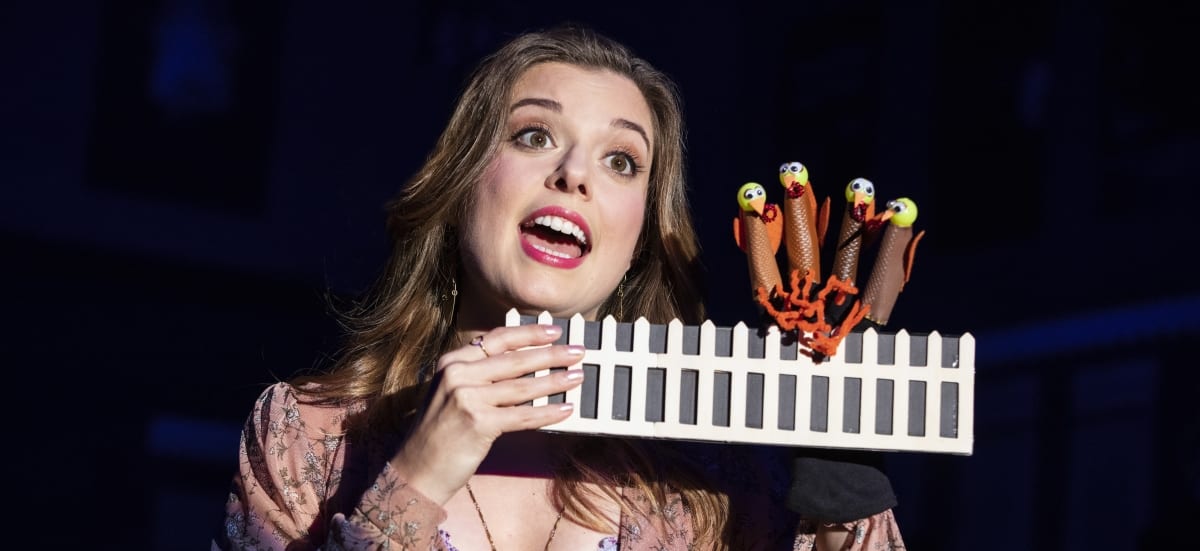So you’ve got two “woke” theater artists; one’s a proud vegan, the other is a yoga freak and self-described “vegan ally.” They hire an elementary school teacher and aspiring playwright with a flair for historical accuracy, and an ethnically ambiguous LA actress. Together, they will create a Thanksgiving pageant that finally gets it right: honoring the celebration while remembering the original sin of it all. It doesn’t go well; this ought to be fun. Larissa FastHorse’s delightfully cringe-worthy new satire pokes at all the eye-rolling aspects of social justice, and manages to dissect its meaning in the least preachy approach possible.
No doubt a regular theater patron has been witness to plays that drip with stirring views on oppression, and how one person or a group can reclaim their power. We are compelled to hold this work in high regard, even if we can’t stand it. Surely our two hippie artists (Jennifer Bareilles as Logan, and Greg Keller as Jaxton, both perfectly cast) would stand in exuberant respect of such work, compulsively aware of their white privilege. After all, wouldn’t you? FastHorse is unrelenting in how she portrays these two: their professions of their own moral clarity are downright insufferable. The least an audience would think is, “I’m not nearly as bad as that”, which only occasionally keeps us from empathizing. Through these two and our other players (the hilariously bumbling Jeffrey Bean as Caden, and the ignorantly blissful Margo Seibert as the not-so-famous Alicia), FastHorse is depicting “woke”-ness in starkly different forms: nodding to them, interrogating them, giving them space, seemingly all at once.
You’ll also get some eyebrow-raising history lessons out of the deal. As Caden relishes all the untold stories of harvest celebrations from long before the “first” Thanksgiving, we are as attentive as curious schoolchildren, complemented in nostalgic detail by Wilson Chin’s classroom set design. We’re also treated to a few familiar folksy musical scene transitions, whose horrific undertones are now bracingly clear, and wickedly uncomfortable when performed with colorful costumes and occasionally graphic puppets.
It is does exactly what a satire should. The uncomfortable laughs are balanced with belly laughs, which director Moritz von Stuelpnagel keeps careful track of as the action escalates into chaos. The audience is relieved of pressures to create grand change in their lives, especially given how play’s bleak and surprising conclusion lets them off the hook. But still, the play gets to us: like our admirably well-intentioned artists, we all want to do better, especially now. But to discover our faults, we must first allow ourselves to sometimes screw up. The Thanksgiving Play gives the characters, and the audience in turn, a safe space to be unsafe, and turn over every stone in the quest for true equity. What the four create together is certainly the most uncomfortable, the most unpredictable, and most perfect pageant they can create. I promise you won’t see it coming. And along the way, you’ll have fun seeing some of your deeply-held values tough-lovingly torn to shreds.

